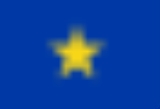
International Congo Society
Encyclopedia
The International Association of the Congo, also known as the International Congo Society , was an association founded on November 17, 1879 by Leopold II of Belgium
to further his interests in the Congo. It replaced the Belgian Committee for studies of High-Congo , which was part of the Association internationale africaine created for exploration of the Congo. The goals of the International Congo Society was to establish control of the Congo basin and to exploit its economic resources. The Berlin Conference
recognized the society as sovereign over the territories it controlled and in 1885 its structures were acquired by the Congo Free State
.
and trade in Africa
. King
Leopold II
was able to convince the powers at the conference that common trade in Africa was in the best interests of all countries. The General Act of the conference divided Africa between the main powers of Europe and confirmed the territory controlled by the Congo Society as its private property, which essentially made it the property of Leopold II.
On April 10, 1884, United States Senate
authorized President
Chester A. Arthur
"to recognize the flag of the AIC as the equal of that of an allied government". On November 8, 1884, Germany
recognized the sovereignty of the society over Congo.
Leopold II of Belgium
Leopold II was the second king of the Belgians. Born in Brussels the second son of Leopold I and Louise-Marie of Orléans, he succeeded his father to the throne on 17 December 1865 and remained king until his death.Leopold is chiefly remembered as the founder and sole owner of the Congo Free...
to further his interests in the Congo. It replaced the Belgian Committee for studies of High-Congo , which was part of the Association internationale africaine created for exploration of the Congo. The goals of the International Congo Society was to establish control of the Congo basin and to exploit its economic resources. The Berlin Conference
Berlin Conference
The Berlin Conference of 1884–85 regulated European colonization and trade in Africa during the New Imperialism period, and coincided with Germany's sudden emergence as an imperial power...
recognized the society as sovereign over the territories it controlled and in 1885 its structures were acquired by the Congo Free State
Congo Free State
The Congo Free State was a large area in Central Africa which was privately controlled by Leopold II, King of the Belgians. Its origins lay in Leopold's attracting scientific, and humanitarian backing for a non-governmental organization, the Association internationale africaine...
.
Berlin Conference
The Berlin Conference or Congo Conference of 1884–85 regulated European colonizationScramble for Africa
The Scramble for Africa, also known as the Race for Africa or Partition of Africa was a process of invasion, occupation, colonization and annexation of African territory by European powers during the New Imperialism period, between 1881 and World War I in 1914...
and trade in Africa
Africa
Africa is the world's second largest and second most populous continent, after Asia. At about 30.2 million km² including adjacent islands, it covers 6% of the Earth's total surface area and 20.4% of the total land area...
. King
Monarchy of Belgium
Monarchy in Belgium is constitutional and popular in nature. The hereditary monarch, at present Albert II, is the head of state and is officially called King of the Belgians .-Origins:...
Leopold II
Leopold II of Belgium
Leopold II was the second king of the Belgians. Born in Brussels the second son of Leopold I and Louise-Marie of Orléans, he succeeded his father to the throne on 17 December 1865 and remained king until his death.Leopold is chiefly remembered as the founder and sole owner of the Congo Free...
was able to convince the powers at the conference that common trade in Africa was in the best interests of all countries. The General Act of the conference divided Africa between the main powers of Europe and confirmed the territory controlled by the Congo Society as its private property, which essentially made it the property of Leopold II.
On April 10, 1884, United States Senate
United States Senate
The United States Senate is the upper house of the bicameral legislature of the United States, and together with the United States House of Representatives comprises the United States Congress. The composition and powers of the Senate are established in Article One of the U.S. Constitution. Each...
authorized President
President of the United States
The President of the United States of America is the head of state and head of government of the United States. The president leads the executive branch of the federal government and is the commander-in-chief of the United States Armed Forces....
Chester A. Arthur
Chester A. Arthur
Chester Alan Arthur was the 21st President of the United States . Becoming President after the assassination of President James A. Garfield, Arthur struggled to overcome suspicions of his beginnings as a politician from the New York City Republican machine, succeeding at that task by embracing...
"to recognize the flag of the AIC as the equal of that of an allied government". On November 8, 1884, Germany
German Empire
The German Empire refers to Germany during the "Second Reich" period from the unification of Germany and proclamation of Wilhelm I as German Emperor on 18 January 1871, to 1918, when it became a federal republic after defeat in World War I and the abdication of the Emperor, Wilhelm II.The German...
recognized the sovereignty of the society over Congo.
External links
- Timeline for Congo — History Commons

